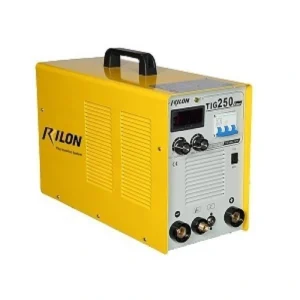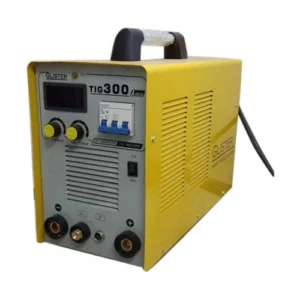Welding Machines & Equipments
-
GB Kore Arc TIG 200 Welding Machine
Model Name/Number TIG 200Welding Type TIG/MMA₹20,000.00GB Kore Arc TIG 200 Welding Machine
₹20,000.00 -
Rilon Inverter Based TIG Welding Machine
Rated Input Current(A) 16Brand RilonRated Output Current(A) 230₹26,000.00Rilon Inverter Based TIG Welding Machine
₹26,000.00 -
TIG Welding TIG 300 Inverter Welding Machine
Model Name/Number TIG 300Welding Type TIG WeldingBrand Rajlaxmi₹25,500.00TIG Welding TIG 300 Inverter Welding Machine
₹25,500.00 -
Three Phase 300A TIG 300 Welding Machine
Brand GlisterOutput Current Range 300APhase Three Phase₹24,000.00Three Phase 300A TIG 300 Welding Machine
₹24,000.00
Welding Machines & Equipment – The Ultimate Buying Guide
Introduction to Welding Machines & Equipment
Welding is one of the most essential manufacturing processes used across multiple industries, including automobile, construction, aerospace, shipbuilding, and metal fabrication. Welding machines and equipment play a crucial role in joining metal parts together using heat, pressure, or both.
Whether you’re a professional welder, a factory owner, or a small workshop operator, choosing the right welding machine can enhance efficiency, improve weld quality, and ensure safety.
This detailed SEO-friendly guide will cover:
✔ Types of Welding Machines & Equipment
✔ Key Features & Benefits
✔ Industry Applications
✔ Factors to Consider When Buying a Welding Machine
✔ Safety Guidelines & Best Practices
✔ Price Range & Top Manufacturers
Types of Welding Machines & Equipment
Welding machines come in different types based on welding techniques, energy sources, and industrial applications.
1. Arc Welding Machine (SMAW – Shielded Metal Arc Welding)
✅ Uses an electric current and consumable electrode to create a strong weld.
✅ Works well with iron, steel, and non-ferrous metals.
✅ Suitable for outdoor and indoor welding applications.
💡 Best for: Construction, shipbuilding, metal fabrication.
2. MIG Welding Machine (Metal Inert Gas Welding – GMAW)
✅ Uses a continuous wire electrode fed through a welding gun.
✅ Requires an inert gas like Argon or CO₂ to shield the weld.
✅ Ensures fast, high-quality welds with minimal spatter.
💡 Best for: Automotive, manufacturing, sheet metal work.
3. TIG Welding Machine (Tungsten Inert Gas Welding – GTAW)
✅ Uses a tungsten electrode for precision welding.
✅ Produces clean and strong welds on stainless steel and aluminum.
✅ Requires manual skill but offers high-quality finishes.
💡 Best for: Aerospace, medical equipment, fine metal fabrication.
4. Spot Welding Machine
✅ Uses electrical resistance to join thin metal sheets.
✅ Commonly used in automobile manufacturing and industrial welding.
✅ Offers fast and consistent welds without the need for filler materials.
💡 Best for: Sheet metal welding, electronics, battery manufacturing.
5. Plasma Arc Welding Machine
✅ Uses a focused plasma arc for high-precision welding.
✅ Works well for thin metals and small components.
✅ Suitable for automated welding systems and robotic welding.
💡 Best for: Aerospace, nuclear power plants, micro-welding applications.
6. Flux-Cored Arc Welding (FCAW) Machine
✅ Similar to MIG welding but uses a flux-cored wire.
✅ Does not require an external gas shield.
✅ Ideal for outdoor welding and structural steel applications.
💡 Best for: Heavy equipment manufacturing, bridge construction, pipeline welding.
7. Laser Welding Machine
✅ Uses laser beams to create precise and high-strength welds.
✅ Ideal for automated welding processes and delicate materials.
✅ Ensures high speed, accuracy, and minimal heat distortion.
💡 Best for: Jewelry, electronics, aerospace, medical devices.
Key Features of Welding Machines
1. Power Source Options
✔ Available in AC, DC, or dual-voltage (110V/220V) models.
✔ DC welders offer smoother arcs and better penetration.
2. Adjustable Amperage Control
✔ Allows customized welding for different material thicknesses.
✔ Ensures better heat control and reduced distortion.
3. Portable vs. Heavy-Duty Models
✔ Portable welding machines are lightweight and easy to carry.
✔ Industrial welding machines are designed for high-capacity usage.
4. Digital Display & Automation
✔ Many modern welding machines come with LCD displays for precise control.
✔ Some models feature programmable settings for efficiency.
5. Safety Features
✔ Overheat protection, voltage fluctuation control, and automatic shut-off.
✔ Ensures operator safety and long-term machine durability.
Industries That Use Welding Machines & Equipment
Welding machines are used in multiple industries where metal fabrication and joining are required.
✅ Automobile & Transport Industry
✔ Essential for chassis fabrication, body panel welding, and exhaust systems.
✅ Construction & Infrastructure
✔ Used in steel frame structures, bridges, pipelines, and railways.
✅ Aerospace & Shipbuilding
✔ Helps in fabricating aircraft parts, engine components, and naval structures.
✅ Electronics & Medical Equipment
✔ Ensures precision welding in delicate instruments.
✅ Manufacturing & Heavy Machinery
✔ Used in creating metal frames, tools, and machinery components.
Factors to Consider When Buying a Welding Machine
✅ Type of Welding Process: Choose a machine that suits your welding requirements.
✅ Power Supply: Select between single-phase, three-phase, or inverter-based machines.
✅ Portability: If you need to move around, choose a compact and lightweight model.
✅ Duty Cycle: A higher duty cycle allows for longer welding sessions.
✅ Safety Features: Ensure the machine has overheat protection and stable voltage control.
✅ Budget & Brand Reliability: Invest in a trusted brand with good after-sales service.
Safety Guidelines for Welding Machines
⚠ Always wear protective gear: Safety gloves, helmet, and fire-resistant clothing.
⚠ Ensure proper ventilation: Avoid inhaling welding fumes and gases.
⚠ Check electrical connections: Use stable power sources to prevent hazards.
⚠ Maintain your welding machine regularly: Clean nozzles, check wiring, and lubricate moving parts.
⚠ Follow proper grounding: Reduces the risk of electrical shocks.
Conclusion
Welding machines are essential for precision metal joining in multiple industries. Choosing the right welding equipment ensures efficiency, durability, and safety in your welding operations. Whether you’re working on small repairs or large-scale industrial projects, investing in a high-quality welding machine will significantly improve productivity.
🚀 Looking for the best welding machines? Explore top-rated options today! 🚀




